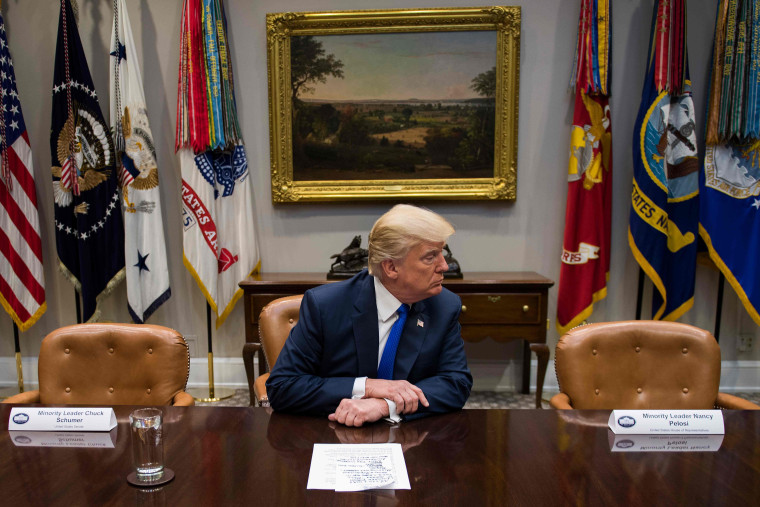On Tuesday night, after Donald Trump's needlessly provocative "nuclear button" tweet, Richard Painter, George W. Bush's chief ethics lawyer, was understandably alarmed. "This tweet alone is grounds for removal from office under the 25th Amendment," Painter wrote.
As Politico reported last night, there's no shortage of this kind of chatter. Politico described the 25th Amendment as a subject of "growing obsession" in D.C.
Lawmakers concerned about President Donald Trump's mental state summoned Yale University psychiatry professor Dr. Bandy X. Lee to Capitol Hill last month for two days of briefings about his recent behavior.In private meetings with more than a dozen members of Congress held on Dec. 5 and 6, Lee briefed lawmakers -- all Democrats except for one Republican senator, whom Lee declined to identify. Her professional warning to Capitol Hill: "He's going to unravel, and we are seeing the signs."
For what it's worth, I'm generally uncomfortable with clinical speculation about any person's mental health from those who've never treated that person.
But discussions about politics and constitutional processes are a different story. Back in mid-November 2016, about a week after Election Day, The Atlantic's David Frum joked, "Twenty-Fifth Amendment to the Constitution. Article 4. We're all going to be talking a lot more about it in the months ahead."
I think David was onto something.
For those unfamiliar with the debate, let's circle back to some of our previous coverage. When we think about removing a president from office, we tend to think of Congress and the impeachment process. The Constitution, however, offers an important alternative.
Under the 25th Amendment, a sitting vice president and a majority of the executive branch's cabinet could, on their own, agree to transfer power out of the hands of a sitting president. At that point, those officials would notify Congress, and the vice president would assume the office as the acting president.
And what if the challenged president wasn't on board with the plan to remove him/her from the office? As Vox explained a while back, "If the president wants to dispute this move, he can, but then it would be up to Congress to settle the matter with a vote. A two-thirds majority in both houses would be necessary to keep the vice president in charge. If that threshold isn't reached, the president would regain his powers."
All of this comes up in fiction from time to time -- I think "24" had an episode about this several years ago -- though in all likelihood, Americans will probably never see this political crisis play out in real life. And that's probably a good thing: by all appearances, the intended purpose of the constitutional provision was to address a president with a serious ailment, such as a stroke, in which he or she is alive, but unable to fulfill the duties of the office.
It probably wasn't written to deal with circumstances like these.
But the law exists, and the possibility that Mike Pence and half of the administration's cabinet -- a group of people who owe their jobs to the president whose stability has been called into question -- continues to be the subject of scuttlebutt.
My advice to Trump's critics remains simple: when it comes to the 25th amendment, keep your expectations low, and focus on more appropriate measures, such as impeachment. Strange things certainly happen -- having a clownish television personality in the Oval Office is itself an unprecedented historical development -- but the odds of Trump's own team turning on him and taking steps to strip him of his power are poor.
